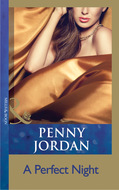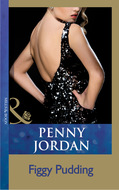Kitap dosya olarak indirilemez ancak uygulamamız üzerinden veya online olarak web sitemizden okunabilir.
Kitabı oku: «The Crightons», sayfa 2
‘I imagine so,’ the older man agreed.
A very large proportion of the priest’s patients were in the final stages of that ravaging disease, abandoned by their frightened families and friends. Working alongside him, David had learned to respect the disease and those who suffered from it. To respect it and not to fear it.
‘I can’t go … not now….’ David resisted, but there was no denying the longing in his voice.
‘Do you often dream of your brother?’ Father Ignatius asked him obliquely.
‘Not like I did last night,’ David admitted. ‘I dreamed about when we were children. It was so vivid. It was when we got our first bikes, but the odd thing was …’ He paused and frowned. ‘In my dream, though I could see myself riding my bike, my feelings were Jon’s.’
The older man said nothing. He knew David had seen Jon Crighton from a safe distance when he had come to the island to visit Max in hospital and eventually take his son home. Life was so precious, and because he was becoming increasingly aware of just how frail his own physical strength was getting, the priest prayed that Jon Crighton would find it in his heart to welcome home his twin.
‘I can’t go,’ David was saying, but the older man knew not just that he could but that he would.
CHAPTER TWO
‘YES, MRS CRIGHTON … very well, Maddy,’ Honor corrected herself into the telephone receiver with a warm smile as she responded to her caller’s request that she use her Christian name. ‘I’d be very happy to come and see your father-in-law, although I can’t promise …’
She paused. Over the years she had grown used to the fact that her patients and their families, having failed to find a cure for their illnesses through conventional medicine, tended to expect that she could somehow produce something magical to restore them to full health.
‘Herbal medicine is not some kind of black art. It’s an exact science,’ she sometimes had to tell them severely.
Many modern drugs were, after all, originally derived from plants even if more latterly scientists had discovered ways to manufacture them synthetically in their laboratories. In her view, synthetic drugs, like synthetic foods, were not always sympathetic to the human system, and to judge from the increasing number of patients consulting her, other people were beginning to share her views.
Honor had not always been a herbalist. Far from it. She had been at medical school studying to become a doctor way back in the seventies, a sloe-eyed brunette burning the candle at both ends, studying and partying and desperately trying to deny her aristocratic background and connections to become part of the London ‘scene’. Ironically, it had not been on the London scene that she had met her late husband but through one of her mother’s friends.
Lady Caroline Agnew had been giving a coming-out party for her daughter, and Honor’s mother had insisted that Honor had to attend. Rourke had been there photographing the event. Lady Caroline had contacts at Vogue and he was the ‘in’ photographer of the moment, more used to photographing long-legged models than chubby adolescent debs.
Honor had been fascinated by him. Everything about him had proclaimed that he belonged to the world she so longed to join. His clothes, his hair, his laid-back manner and, most of all, his sharp cockney speech. Somehow or other she had managed to catch his eye and they had left the party together.
Three months later they became lovers and three months after that they married and she dropped out of medical school.
For two years she had been so passionately and completely in love with him that she had blinded herself to reality, his unfaithfulness, his drinking, the drugs he was taking with increasing regularity, the bills that mounted up because he refused to pay them, the unsavoury characters who hung like dark shadows on the edges of his life, their lives, and then she had become pregnant.
Their first daughter Abigail had been less than six months old the first time he left her.
Her parents, who had never really forgiven her for her marriage, had refused to have her home, but her father had given her a tiny allowance just enough to cover the rent on a small flat, and she had found herself a job working in a small family-owned chemist’s shop. It had been whilst working there that her interest in medicine had been reactivated. The shop was old-fashioned, its upper room stuffed with all manner of things amongst which Honor, who had been sent upstairs to tidy it, had found the herbal book that once opened she had been unable to put down.
Rourke, his affair over, had turned up on her doorstep one dark, wet night and foolishly she had taken him in. Nine months later Ellen was born. Rourke had already embarked on another affair with a rich older woman this time.
On her own again, Honor had become fascinated by herbal medicine and cures, so much so that when she learned of a local herbalist in a magazine she was reading in the dentist’s waiting room, she made a note of her address so that she could get in touch with her.
Now a fully trained herbalist herself, Honor always made a point of advising her patients to make sure they went to similarly trained and accredited practitioners whenever they chose alternative forms of healing.
Her own training had been long and thorough and one of her main reasons for coming to live here in the rather dilapidated house she had just moved into on her second cousin Lord Astlegh’s Cheshire estate was because of the land that went with it—land on which she would be able to grow some of her own herbs in a way that was completely natural and free from pesticides and any kind of chemicals. The house, which was miles away from any other habitation, might have drawn cries of despair from both her daughters, who had protested at its lack of modern amenities and creeping damp, but Honor had assured them that once she had time to get someone in to repair and improve the place, it would make a very snug home indeed.
‘It’s a hovel,’ Abigail had said forthrightly.
‘A wretched hovel,’ Ellen had agreed.
‘The locals will probably think you’re some kind of witch,’ Abigail had joked.
‘Thank you very much,’ Honor had told her daughter drily. ‘When I want my ego boosted, I shall know where to come.’
‘Oh, no, Mum, I didn’t mean you look like a witch,’ Abigail had immediately reassured her. ‘Actually, you look pretty good for your age.’
‘Mmm … Nowhere near forty-five,’ Ellen had agreed.
‘Forty-four, actually,’ Honor had corrected her with dignity.
‘Honestly, Mum,’ Abigail had told her. ‘With all the money you inherited from Dad, you could have bought yourself somewhere really comfortable. I know you had to scrimp and scrape whilst we were growing up, but now …’
‘Now I have chosen to come and live here,’ Honor had told them firmly.
She was still not totally over her shock at the amount of money she had inherited from Rourke. She hadn’t expected him to die so relatively young and certainly not from something so ridiculous as a cold turned to pneumonia. She was even more surprised to discover that since they had never divorced, she was his next of kin. The young leggy model he had been living with had been quite happy to accept the fact, simply shrugging her sparrow-like shoulder-blades and gazing at Honor with drug-glazed eyes as she shook her head over Honor’s concern and explained in a small, emotionless voice that she was really quite rich herself.
Rourke’s unexpected wealth had come not from his current work as a photographer but from his earlier and highly original work as a young man, which had now become extremely valuable collector’s pieces, selling for thousands upon thousands of pounds.
She had insisted on sharing the money with the girls, her daughters … Rourke’s daughters. Both of them were adults now and they often tended to treat her as though she were the one in need of parenting. Whilst both of them loved their mother’s elderly second cousin and thought that his Palladian home, Fitzburgh Place, and the philanthropic way in which he was developing the estate’s resources were both worthy of their highest approval, they were united in disapproval of the ramshackle place their mother had chosen to make her home.
‘I can’t bear to think about your living like this,’ Ellen had said, grimacing in distaste as she wiped a fastidious finger along one grimy window-sill the weekend her mother had moved into Foxdean.
‘Then don’t think about it,’ Honor had advised her gently.
Much as she loved them, her daughters, both wonderful girls, clever, independent, good fun to be with and undeniably beautiful, could, at times, in their attitudes and conversations, remind her disconcertingly of her own mother.
‘Honoraria has always been … way ward,’ her mother had been fond of saying exasperatedly, and Honor knew how pained and bemused her mother in particular had been at what she had seen as her daughter’s determination to turn her back on the kind of life they had expected her to lead.
If her decision not to go to Switzerland following in her mother’s footsteps and attending an exclusive finishing school but instead to study medicine had shocked and confused her parents, then the way she had ultimately lived her life, the man she had married, the friends she had made had earned her their wholehearted disapproval. But as she sometimes pithily had to remind the more conventional members of her large family, their aristocratic forebears, of whom they were so proud, had received their lands and titles for acts that had been little short of outright theft and barbarism.
Her parents had tried their best, poor darlings. No one could have been more true to stereotype than her father. His family, although not quite as noble as her mother’s, was nonetheless extremely respectably provenanced. No doubt the Victorian son of the Jessop family, who had so providentially married the only daughter of an extremely wealthy mill owner, had been more than happy to exchange his upper-class connections for her wealth. Honor’s mother’s family had always managed to marry well, which was, of course, the main reason why her second cousin, unlike so many of his peers, could afford to be paternally benevolent towards his tenants and keep his large estate in tiptop condition.
Apart, of course, from her house.
What she had not told her daughters, and moreover had no intention of telling them, was that the main reason the house was so dilapidated was because of the history appertaining to it.
Local legend had it that originally it had been built on the instructions of the younger brother of the then Lord Astlegh to accommodate his mistress. He would visit her there, often spending several days with her much to the disapproval of his elder brother and the rest of his family who had arranged a profitable marriage for him with the daughter of another landowner.
The young man refused to do their bidding. The only woman he wanted, the only one he could love, was his mistress, the wild gypsy girl for whom he had built the house but whom he would often find wandering barefoot through the woods scorning the comforts of the home he had given her.
‘Come with me,’ she was supposed to have begged him when he told her of his family’s plans for his future. ‘We can go away together … be together….’
He had shaken his head. He loved fine food, fine wines, fine books.
‘I can’t stay here,’ the gypsy girl had told him. ‘It hems me in. I need to travel, to be free. Come with me.’
‘I cannot,’ he had told her sorrowfully.
‘You are a coward,’ she had returned contemptuously. ‘You have no fire, no passion. You are weak. You are not a true man, not like a Romany man. A Romany man would kill for the woman he loved.’
Her voice had been scornful, her eyes flashing, and in the darkness of the small copse where they had argued, he had mistaken her tears for a gleam of taunting mockery.
It had been said later when the bodies were found that she had bewitched him and that only by killing her and then killing himself had he been able to break free of her spell.
He came from a powerful family, the most powerful family in the area. James, his elder brother, the then Lord Astlegh, used his position to have the affair hushed up, but news of what had happened quickly spread amongst the local population and with it claims that the copse and the house itself were haunted. Tenants who pooh-poohed the warnings and moved sturdily into it very quickly decided to move out again!
It was a reasonably sized house, a well-built, pretty Georgian red brick building with its own small porticoes and elegant sash windows, the kind of house that the upper-class women Honor had grown up with would drool over as the ideal country retreat, but her cousin was unable to successfully find a tenant. It was he who told Honor of the legend surrounding it.
‘Have you ever seen a ghost there?’ she had asked him, intrigued.
Immediately, he had shaken his head. ‘Dashed nonsense if you ask me,’ he told her gruffly. ‘But wouldn’t want you not to know about it. Give it to you rent-free. Can’t sell it—part of the estate. Have to do your own restoration work on it … local workforce shun the place.’
Honor who had fallen in love with the house the moment she saw it had been delighted.
Her chance visit to her second cousin had really been a duty visit since she had heard on the family grapevine that he was suffering badly from a colicky stomach disorder that the doctors seemed unable to relieve. She had guessed that she was being subtly asked if she could do anything to help, but the visit had had the most advantageous outcome. She had been looking for a new home for some time.
Rourke’s inheritance meant that she could actually afford to completely renovate the place and fulfil the ambition she had been harbouring, not just to prepare her herbal remedies but to grow the herbs themselves, as well. Foxdean, with its surrounding land, was perfect for her purposes. Why, she might even be able to persuade her cousin to allow her to erect a glass house where she could grow some of the more tender, vulnerable herbs.
A visit to Haslewich’s excellent health-food shop and a long chat over lunch with its owner had resulted in her being contacted by so many potential patients that her diary was becoming quite full. This was why, as she listened to Maddy Crighton outlining her grandfather-in-law’s problems, she had to tell her, ‘I can’t do anything for Mr Crighton until I have seen him, of course, and unfortunately, my first free appointment is not for a few weeks.’
There was a small pause at the other end of the telephone line, then she heard Maddy saying, ‘Oh dear. Well, in that case we shall just have to wait until then.’
As she pencilled the appointment into her diary, Honor asked Maddy several questions about her grandfather-in-law.
‘He’s had two hip operations in the past few years, but he’s still complaining about the pain he’s suffering,’ Maddy informed her. ‘But it isn’t just his pain that’s concerning us. Just lately he seems to have lost interest in life. He’s always been rather dour and a little bit tetchy, but these past few months …’
‘If he’s in constant pain, it will be having a debilitating effect on him,’ Honor responded, ‘if his GP hasn’t prescribed some painkillers.’
‘Oh, he has, but Gramps threw them away. He isn’t very good about taking medicine … he doesn’t have a very high opinion of the medical profession.’
‘Oh dear,’ Honor sympathised, guessing that Ben Crighton was the kind of patient who made most doctors’ hearts sink.
‘I’m afraid I must be painting a rather gloomy picture,’ Maddy apologised. ‘Gramps can be a little bit difficult at times, but I hate to see him in so much discomfort. He isn’t so old after all, only in his early eighties. I know it must be frustrating for him not being able to get about as much as he used to. He doesn’t drive any more and he can’t walk very far.’
‘Try to persuade him to take the painkillers his doctor has prescribed,’ Honor advised her.
‘Do you think you’ll be able to do something to help him?’ Maddy asked tentatively.
‘Hopefully, yes. You’d be amazed at the difference even the smallest fine-tuning of someone’s diet can make where joint pain is concerned. Then there are poultices that can be applied to the damaged joints and a variety of herbal medicines that can help. I’ll be better placed to discuss these with you, though, once I’ve seen Mr Crighton.’
After she had finished speaking, Honor went through to the old-fashioned back kitchen that she was in the process of turning into her still-room. In the passage that led from the kitchen proper to this room, she had put up bookshelves and she looked quickly along them, extracting a volume that she carried back with her to the kitchen proper. She sat down in a chair whilst she looked for what she wanted.
The book was one she had found tucked away amongst a pile of fusty documents at the back of a little bookshop in the cathedral town of Wells. As it was entitled A Medieval Herbal, she had pounced on it straight away. Now as she turned the pages, she paused at the one headed ‘Bramble’ and read it with a small smile. ‘For sore of joints take some part of this same wort, seethe in wine to a third part and with the wine then let the joints be bathed.’
As she closed the book, Honor sat back in her chair. Herbalism had come a long way since its early days, but its principles were still the same as they had always been—to heal the sick.
In the high-pressure world of modern drugs the race was on to comb the most remote tracts of land searching for the plant that would give the world a panacea that would cure mankind of all his ills and give him eternal youth.
Personally, Honor felt that their efforts would be better employed in preserving the rain forests instead of letting them be destroyed. Surely the increasing incidence of childhood asthma and eczemas was proof enough of what polluting the earth’s atmosphere was doing. Trees cleaned the air. Without them …
Already she had plans to plant a new grove of trees on her rented land. She knew that her views, her beliefs, often exasperated Ellen who, as a biologist, took a somewhat different view of things, whereas Abigail, an accountant, tended to view everything in terms of profit and loss.
It often amazed her that she had produced two such practical daughters—or was it that the hand-to-mouth peripatetic existence they had all had to live when the girls were young had made them overly cautious?
As she got up to fill the kettle and make herself a cup of coffee, the black cat, who had appeared from out of nowhere the first week she moved in and adopted her, strolled through the door.
None of Honor’s enquiries had brought forward an owner for the cat, who had now fine-tuned her timetable to such a precise degree that Honor knew without having to look at the kitchen clock that it must be three o’clock.
The cat, she assumed, must have found its way to the house along the old bridle-way that passed in front of it, leading from Haslewich to Chester across her cousin’s land.
She frowned as she glanced towards the kitchen door. Like the rest of the house, it was very much in need of repair if not replacement. She was going to have to renew her efforts in finding someone to work on the place soon.
The two large building firms she contacted had given her what she considered to be extortionate quotes and the three small ‘one-man’ businesses she tried had all turned her down with a variety of excuses.
Thoroughly exasperated when the third man who had been recommended to her claimed to be ‘too busy’, she challenged him, ‘Don’t tell me that people around here still actually believe those idiotic stories about the place being haunted?’
The man had flushed but stood his ground. ‘They ain’t just stories,’ he had told her grimly. ‘Uncle of mine broke his leg working here. Aye, and had to have it cut off—infection set in.’
‘An accident,’ Honor had responded. ‘They do happen.’
‘Aye, they do, and this house has had more than its fair share of them,’ he had answered bluntly.
‘I can’t believe that people are actually refusing to work on the house because of some silly story of its being haunted,’ Honor had complained to her cousin a few days later when he invited her up to Fitzburgh Place to have dinner. ‘I mean … it’s just so … so … ridiculous.’
‘Not as far as the Cooke family are concerned,’ he had retorted. ‘They’re closely related to the gypsy tribe the girl was supposed to have come from, and in a small town such things aren’t easily forgotten.’
‘Oh, I’m not saying that there wasn’t an affair nor that it didn’t end tragically. It’s just this silly idea of the house being haunted.’
‘Mmm … well, the Cookes are a stubborn lot, a law unto themselves in many ways. You could try bringing someone in from Chester.’
‘I could try paying nearly double what I should be paying to a high-priced fancy builder, as well,’ Honor retorted drily, adding with a twinkle in her eye, ‘I’m beginning to think my “bargain” home with its peppercorn rent wasn’t quite the bargain I first supposed.’
‘Ah well, my dear, you know what they say,’ Lord Astlegh told her jovially. ‘Caveat emptor.’
‘Let the buyer beware,’ she translated.
REMEMBERING the pleasant evening she had spent with her cousin, Honor smiled. He was a kind man, well-read and interesting to talk with. A widower now without any children to inherit from him, he was determined to do everything he could to safeguard the estate from being broken up when it eventually passed into the hands of the next in line. It was to that end that he was trying to make the estate as self-supporting as possible, using a variety of innovative means.
The outbuildings that he had converted into small, self-contained working units for a variety of local craftspeople were now in such demand that he had a waiting list of eager tenants. The antiques fairs and other events that the estate hosted brought in not just extra income but visitors to the working units and to the house and gardens and its tea and gift shops.
He was now talking about renovating the orangery and getting it licenced for weddings, and Honor had to admit it would make a perfect setting for them. Large enough to hold even the most lavish of receptions, the orangery ran along one wall of the enclosed kitchen garden. Enthusiastically, he had described to her how he planned to have the garden subtly altered with the addition of bowers of white climbing roses and a fountain.
As she listened to him, Honor had discovered that most of his ideas came originally from the man who was responsible for organising the antiques fairs—Guy Cooke.
‘Nice chap,’ he had told Honor. ‘Must introduce you to him and his wife. Pretty girl. One of the Crightons but on the wrong side of the blanket. Still, can’t say too much about that with our colourful family history, can we?’
THE CAT MIAOWED demandingly and to oblige it Honor went to get some food. Tomorrow she would make a concerted effort to find herself a builder—unless fate was kind enough to send her one.
‘A HERBALIST! I can’t see Gramps … Do you think that’s a good idea?’ Max Crighton asked his wife dubiously. ‘He’s bad enough about conventional medicine and I don’t think—’
‘We don’t have to tell him that she’s a herbalist,’ Maddy said gently. ‘I don’t want to deceive him, but I’m so worried about him, Max. He looks so weak and frail even the children are beginning to notice.’
‘Mmm. I know what you mean,’ Max agreed absently, picking up one of the fresh scones Maddy had just placed on a wire rack to cool and then shaking his fingers as it burned them.
‘Wait until they’re cool,’ Maddy scolded him. ‘You know they’ll give you indigestion if you don’t.’
‘Indigestion.’ Max’s eyes danced with laughter. ‘That’s what marriage does for you. The woman you love stops seeing you as someone who is sexually exciting and thinks of you instead as someone with indigestion.’
‘I wouldn’t say that,’ Maddy responded with a small smile.
‘No?’ Max questioned, his voice muffled as he took her in his arms and buried his mouth in the warm, soft, creamy, cooking-scented curve of her throat.
‘Nooooo …’ Maddy sighed.
The truth was that it would be hard to find a man who was more sexually attractive than her husband. Max wore his sexuality with very much the same panache and air of self-mockery with which he wore his barrister’s robes, a kind of dangerously sexy tongue-in-cheek, wry amusement at the reaction he was causing, coupled with a subtle but oh so sexy unspoken invitation to share in his amusement at it.
‘Why is that lady looking at my daddy?’ Emma had once asked Maddy as Max had met them both on their way home from school. He had stopped his car and got out, causing all the other mothers to gawp at him with varying degrees of bemused appreciation.
‘The lady’ in question had been almost as stunningly attractive as Max was himself, but for all the notice he had taken of her she might as well have been the same age as his aunt Ruth.
To the envy of Maddy’s friends, Max was a totally devoted husband and father.
It hadn’t always been that way. The Max who had married her had been a dangerous predatory man who had treated the emotions of those closest to him with a callousness it was hard to imagine now.
If, by some horrible blow of fate, the changes within him brought about by his frighteningly close brush with death in Jamaica should ever be reversed and he should revert to the man she had first met, Maddy knew that she could not and would not go back to being the girl she had been, the girl who had such low self-esteem that she had quietly and humbly allowed Max to emotionally abuse her.
Those days were gone and so was that Maddy. Now she and Max were equal partners in their marriage. Max didn’t just love her; he respected her, as well.
‘Where are one, two and three?’ he murmured against her throat as he nibbled hungrily, referring to their three children.
‘At your mother’s,’ Maddy told him huskily.
‘Mmm … let’s go upstairs.’
‘What’s wrong with down here?’ Maddy teased him daringly, giving him a flirtatious look. ‘Ben never comes in here and there’s no one else in the house.’
‘Here?’
Max raised his eyebrows, but Maddy could tell that her suggestion had excited him.
‘You look so wonderfully sexy in your court clothes,’ she whispered in a small breathy voice.
Max started to laugh but immediately joined in her game, reaching out towards the tray of scones and saying sternly, ‘So what is this? I see that one scone is missing and you, wench, are the only one who could have taken it. Such a theft demands a very heavy sentence.’
‘No … no …’ Maddy cried, trying to tug her hand out of Max’s grasp, but he refused to let her go, skilfully backing her against the table.
‘A very heavy punishment,’ he repeated huskily. ‘Unless, mayhap, you have not eaten the stolen sweetmeat but secreted it about your person, in your pocket, perchance,’ he demanded. ‘Or …’
As his hands lifted towards her breasts, Maddy exploded into laughter. ‘Oh, Max.’ But as she saw the look in her husband’s eye, her laughter died.
‘Oh, Max, what?’ he challenged as he moved his body over hers and slid his free hand inside the blouse he had just unfastened. His palm felt heavy and warm against her breast, her nipple hardening immediately.
‘We can’t,’ Maddy breathed. ‘Not here …’
‘No?’ Max challenged her, letting go of her wrist to push her blouse off her shoulder and un-clip the front fastening of her bra before lifting her onto the table.
An hour later, a flushed and floury Maddy just managed to finish fastening her blouse before her three children and her mother-in-law came into the kitchen.
‘Jenny.’ Maddy beamed as she responded to the older woman’s affectionate hug. ‘Thanks for having them. Have you been good for Grandma?’ she asked her two elder children whilst Max expertly scooped their youngest out of Jenny’s arms.
‘Your skirt is all floury,’ Leo pointed out to his mother.
‘Yes, and so is your blouse,’ Emma chirped.
Blushing, Maddy turned away.
‘Mummy’s been very busy,’ Max told them tongue-in-cheek.
As Maddy turned towards him to give him a wifely look, Jenny remarked in amusement, ‘There’s flour all over the back of your skirt, as well, Maddy … and Max’s suit—’
‘Caught in the act,’ Max admitted cheerfully. ‘Well, almost …’
‘Max!’
Both Jenny and Maddy protested at the same time.
‘What does Daddy mean?’ Emma demanded, tugging insistently at Maddy’s skirt.
‘Uh-huh, bath time for you, baby,’ Max announced quickly, walking towards the kitchen door.
‘Men!’ Maddy expostulated to her mother-in-law after he had escaped.
‘Hmm. Talking of which, how’s Ben?’ Jenny asked her.
‘Not really any better,’ Maddy admitted. ‘He just doesn’t seem to … I’ve arranged for this herbalist I’ve heard about to come and see him. The problem is that she’s so busy it’s going to be a few weeks before she can come.’
‘A herbalist …?’
‘Herbal medicines are proven to work,’ Maddy began defensively, but Jenny shook her head.
‘I wasn’t criticising, my dear. I think it’s an excellent idea.’
‘Do you? Good. In fact, I’ve been wondering if we mightn’t use it somehow at The Houses.’
‘The Houses’ were the units of accommodation originally sponsored and started by Ben Crighton’s sister Ruth to provide secure homes for single mothers and their babies. They had since been extended to provide not just accommodation and rooms where young fathers could visit their children, but also to give access to educational opportunities to help equip the young mothers to earn their own living.







